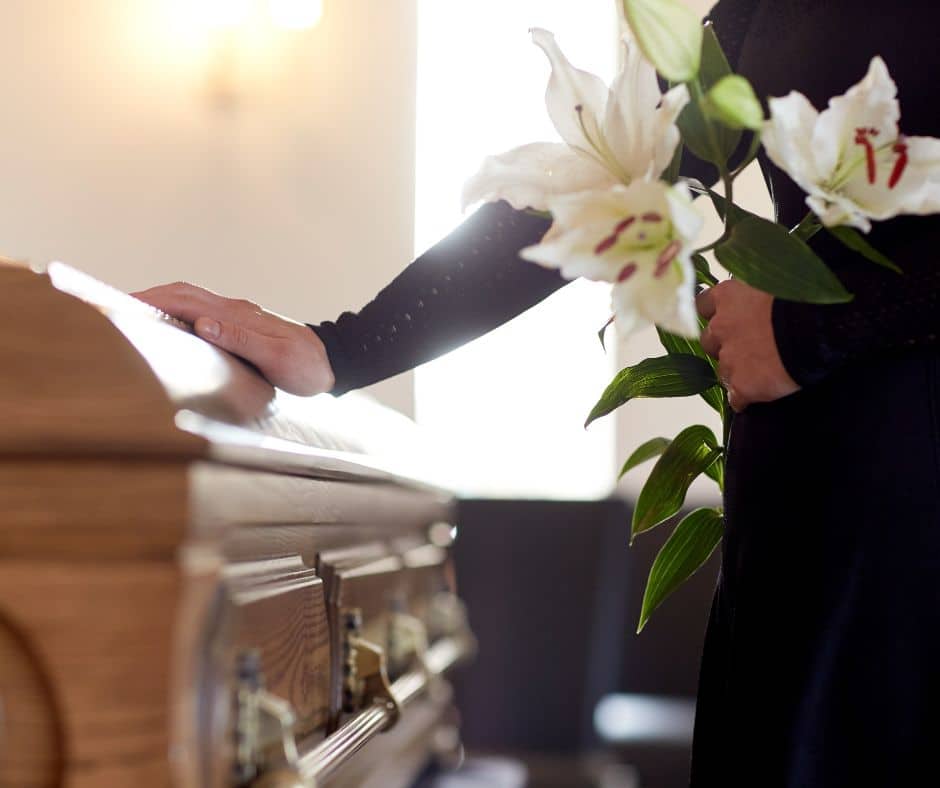Losing a loved one is undeniably one of the most challenging experiences anyone can go through. The added burden of handling practical matters can seem overwhelming during such a difficult time.
Recognising this, the compassionate team at KompleteCare has developed an accessible checklist to assist you in managing the immediate tasks that follow the loss of a partner, parent, or close friend. This guide aims to simplify these duties and offer some relief during your period of grief.
Verifying a loved one’s death
A medical practitioner must conduct the verification of death assessment. In cases where no medical practitioner can verify death, registered nurses, midwives, and qualified paramedics can do so.
A medical practitioner completes the medical certificate of cause of death. They will complete the Verification of Death form.
Transporting a loved one’s body
First, you must check if they are organ and tissue donors. You can check the Australian Organ Donor Register.
The deceased is then transported to a mortuary, usually at a funeral home. If they pass in an aged care facility, a hospital, or a hospice, you don’t need to do anything. The staff will arrange the doctor and tell you how long they can care for the body.
Notifying people of a loved one passing
Notifying friends and family about the loss is undoubtedly tough but necessary. It’s advisable first to contact those closest to the deceased, allowing some time for both you and them to process the loss before making plans to inform others, potentially sharing the responsibility to ease the burden.
Organising a loved one’s funeral
Check for a will and essential documents. These will help you act on behalf of the deceased person and tell you their final wishes. The funeral director will usually register the death on your behalf if you’re having a funeral.
Once you have chosen your venue, the funeral director will set up a time with you to discuss plans for the funeral, burial or cremation. In the meantime, it can be helpful to begin considering or arranging the following:
- The clothing you wish for your loved one to wear.
- Photos and music to be used during the ceremony.
- Flowers and keepsakes to have on the coffin or decorating the venue.
- Information you wish shared in the eulogy. Also, if people want to speak at the ceremony.
- The location, catering and details for the wake.
Paying for a loved one’s funeral
In some cases, especially where the loved one was terminally ill or elderly, they may have opted for one of the following in preparation for their funeral. Information for these should be in the individual’s will or final communications:
- A term deposit or savings account separate from other finances is set up solely for this purpose.
- Prepaid funeral insurance or funeral bonds.
Funerals can cost from $4,000 for a basic cremation to around $15,000 for a more elaborate burial.
A typical funeral will have these costs:
- funeral director fees
- transport
- coffin
- death certificate
- permits (for example, for a burial at sea or on private land)
- burial or cremation
- cemetery plot
- other expenses such as a celebrant or clergy, flowers, newspaper notices and the wake
If your loved one does not have any prior arrangement for payment of their funeral, other options could help assist with the cost outlay:
- Services Australia offers Government Bereavement Payments to help people. If the funeral home is a registered Centrepay business, you can use Centrepay to help pay for funeral costs.
- Super Annuation- It can take time to get the money. You may have to pay upfront and claim it back once their will is finalised.
- Check whether the person or a veteran’s partner was in the defence force. The defence force may help with some costs or arrange funeral services if they were. You can check this via the Department of Veteran Affairs website.
- In some cases, many banks can offer a loan to assist with funeral costs and will expedite the process with the presentation of a death certificate or confirmation.
Arranging your loved one’s business and finances when they pass away
- You need to tell Services Australia within 28 days of a loved one’s death.
- You may also need to tell other people and organisations. The Australian Death Notification Service website is a free government service that helps you contact multiple organisations simultaneously.
- Services Australia has a helpful webpage to help you review the checklist of potential business and finance contacts requiring a death notification. You can access this list right here: Who to Notify checklist.
- Remember to close their online accounts, mobile apps, and social media accounts. These are just some of the accounts they might have: Bank Apps, Email Accounts, Cloud Storage Accounts, Social Media Accounts, Online Payment Accounts, e.g., Paypal or Afterpay, and subscriptions, e.g., Netflix. In most cases, if you don’t have direct access to these accounts, you can appeal to the account admin or help desk to arrange closures.
Using a loved one’s death certificate
- You must register the death with the births, deaths and marriages registry in your state or territory. They’ll then issue a death certificate.
- It can take some time to get a death certificate. Once you get it, make multiple copies, have them certified by a Justice of the Peace, and provide a certified copy to all the people and organisations who requested it.
- You can get your copies certified at most Police stations and libraries or with a local Justice of the Peace.
How to look after yourself when losing a loved one
This may be a difficult time. Remember to care for yourself and look after your mental and physical health.
To access confidential counselling services 24 hours a day, seven days a week:
- Call Lifeline Australia on 131 114 or visit the Lifeline website
- Call Beyond Blue on 1300 22 4636 or visit the Beyond Blue website
- Call MensLine Australia on 1300 789 978 or visit the MensLine website.
- Call the Griefline on 1300 845 745 or visit the Griefline website.
Acknowledging that the journey through grief and adjustment does not conclude with completing these immediate tasks is crucial. The path to healing is personal and ongoing.
As you navigate this challenging period, remember that the compassionate team at KompleteCare remains steadfastly by your side, even if the loved one who passed was our client, not yourself. Our commitment to providing support and guidance extends to our client’s family and loved ones.
Connecting you with counselling services for emotional support or simply offering a listening ear, KompleteCare is dedicated to being a pillar of support. In these moments of profound change and reflection, you are not alone. The strength of the community and the availability of professional assistance can be a comforting presence during these times.




